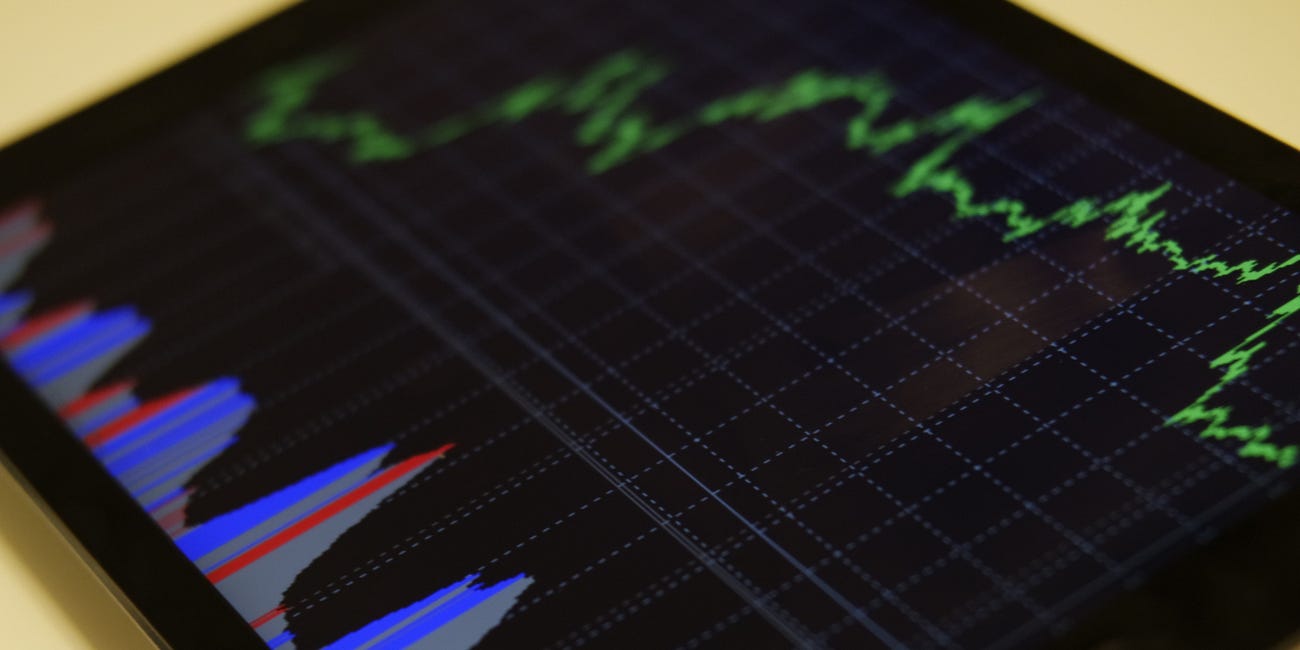In this episode, we discuss signs of stability in the economy, reflections on the long-term implications of higher rates, and the impact of Taylor Swift on the economy.
The episode is based on yesterday's newsletter which is available on Substack.
Ticking Up
Summary: We’re seeing some uptick in the macroeconomic environment. Confidence appears to be improving and inflation headwinds are abating. Capital markets are also healing but are starting to weigh the impact of higher longer-term interest rates.
A transcript of this podcast, with relevant images and quotes, is available for all subscribers after the show notes below. Our podcast is available on Apple Podcasts, Spotify, Google Podcasts, YouTube, and Amazon Music.
Show Notes
00:00:00 Introduction
00:01:39 Inflation has Peaked
00:02:20 A Tepid China
00:04:48 Capital Markets Are Healing
00:06:19 Adjusting to A New World of Higher Rates
00:09:05 The Taylor Swift Effect
00:10:40 Conclusion
Transcript
Introduction
[00:00:00] Scott: Welcome everyone to a new episode of the Transcript podcast. You've got me, Scott Christoff. I'm editor of the Transcript, along with Erick Mokaya, who's the lead author.
Optimism on the Rise
We sent out a new issue of the newsletter yesterday, and what we saw was an uptick in the US economy. This may not be too surprising because, as equity indexes have risen, I think optimism is just generally growing that we are at the end of the fed hike cycle, inflation is on the way down and the economy has normalized. And so I think people are starting to get excited that we might be at the start of a renewed upturn in the economic cycle. Erick, what are your thoughts on this?
"During the quarter, we also saw improvements in macroeconomic indicators across our North America and international segments but continue to see customers trading down and seeking value in their purchases." - Amazon (AMZN 0.00%↑) CFO Brian Olsavsky
“My sense, talking to customers, is that while the macro environment is still challenging, it has stabilized. And for the first time in several quarters, sentiment among IT buyers does not appear to be getting worse." - Cloudflare (NET 0.00%↑) CEO Mathew Prince
[00:00:40] Mokaya: I remember last year you said capital markets kind of tend to bottom before optimism kind of itself bottoms and then like goes on its way up. It feels like we are at that part of the cycle where people are a bit more optimistic. People feel like we are past the tough times. You remember last year. The major symbol was the hurricane. This time it's like, okay, we are past the hurricane may not happen after all things are looking good and looking forward, and that's translating a lot to the consumers also. So I think the keyword, I think from many earnings calls last week was stabilization, if it's AWS, the cloud growth has stabilized so it stopped going down. Freight recession is ending, inflation is abating. So I think like all around kind of positive sentiments. So I don't know how long this will last. It depends a lot on what the Fed does in September and then Jackson Hole is coming up. So then I don't know what any other pickings that you have in terms of like the outlook, especially for the economy going into the second half of the year now.
Inflation has Peaked
[00:01:39] Scott: Yeah. Well, I mean, I think we've been Picking up for a long time now that inflation has peaked. And this week felt very definitive in the way that people were talking about it. I think it was like, almost like, and of course, inflation has peaked, or of course, inflation is coming down now. I think there was a question over the last 12 months of, yes, inflation has come down, but we're still in an inflationary environment today, it's more like, yeah, inflation seems to be, seems to have peaked and seems to be coming down quite a bit. So that should make the Fed really happy, I think, as they are looking forward in terms of what policy they should maintain. Still, though, it doesn't seem like they're ready to signal a decline in interest rates but at least maybe. The hike cycle seems to be almost at the end, if not over.
"...Across our North America and international results, inflation headwinds also continue to ease, most notably in fuel prices, linehaul rates, ocean and rail rates." - Amazon (AMZN 0.00%↑) CFO Brian Olsavsky
"What we are seeing in terms of inflation is it is flattening and we're not seeing the increases we saw in 2022, in early 2023. And we're seeing a few items decrease, mainly on the steel side of things. So our casing and our tubular goods, anything that's fuel related, we've seen some relief chemicals, we've seen some relief" - Pioneer Natural Resources (PXD 0.00%↑) CEO Richard Dealy
[00:02:30] Mokaya: I mean a key picking in regards to inflation picking and being past that. There's a quote there about we're starting to, it becoming more difficult for companies to pass through the increased costs. To the consumers, it feels like we are hitting that point where the consumer can no longer take any more price increases, and companies have to rethink their strategies beyond just increases in pricing.
And that feels like that can call the end of a price increase hike cycle. And then now it's about now, okay, what else can we do in terms of maybe cutting costs and also like to preserve margins at the end of the day? So I think this is a key thing that I've been looking at for a couple of months where companies, because early this year what was happening is that we can still increase prices. Now consumers are like, we can no longer actually do price increases without hitting our volumes a bit too much. So I think that's a key picking.
A Tepid China
[00:02:20] And beyond, I think the US I think one key picking I have also been checking out the past couple of weeks is about how China is struggling to actually I mean, coming into this year most. People are very optimistic about China's growth. Lots of companies are betting on picking up growth in China to boost their growth this year, but it feels like that has not materialized. And going into the second half of the year, it feels like China now needs an economic stimulus package that is almost equal to what the US had. What are your pickings around China and what companies are saying about it?
"What we're seeing is that China really slowed quite meaningfully in Q2, right?...we saw the slowdown really cut across the portfolio if you will, and it seems to be economic activity. We always assume, hey, are we doing something wrong? Are we losing share?...it just feels like customers got extraordinarily cautious in China, activity slowed and it showed up across the portfolio." - Thermo Fisher Scientific (TMO 0.00%↑) CEO Marc Casper
[00:03:53] Scott: Yeah, it's a. It's been a bit surprising to me, I guess, that the Chinese economy has been so sluggish, and has continued to be sluggish. I would've expected more of a rebound from the Covid opening. And so my own view of it is that the geopolitics of China makes it such that I think companies are trying to turn away from China more and near-shore manufacturing, for instance. And so that provides probably a pretty strong headwind for the Chinese economy on top of everything else.
[00:04:26] Mokaya: But big tech, at least like Apple, is really growing in emerging markets. It feels like Apple is betting on a lot of growth, especially in India, and it was one of the boosts that came this quarter. I don’t know how much further that growth has because they mostly focus on high-end consumers. Dunno how many of those they have to tap into.
Capital Markets Are Healing
[00:04:48] But something else that we noted also, capital markets are healing in terms of, that's been the theme in the past two or three weeks, it feels like we passed the bottom of the capital market issues that they've been having for a while. But then something you noted was about the implications of higher long-term interest rates. For many of us, we've not lived through these very high interest rates that we have currently. And I mean, when I talk to my father-in-law, he tells me about 15% interest rates in the eighties in Scandinavia. I think that's surprising and shocking for me because we've grown up in an environment where we have, you know, 6% is so high, 7% is very high for us. So I don't know. What's your thought about the long-term implications in terms of market processing? The fact that we have high interest rates that we need to cope with even as we borrow and lend to companies and all.
"As you'd expect, these economic forces have slowed the pace of investment across the industry. You see this in the amount of capital we are deploying and you see it in lower fundraising LPs slow decision-making on new fund allocations. Having said that, in general, our teams are seeing signs of an increasing pace of early deal flow access across most asset classes" - Carlyle Group (CG 0.00%↑) CFO Harvey Mitchell Schwartz
[00:05:35] Scott: Yeah, I mean, I think this is the biggest thing for capital markets is that ultimately equity prices are a pass-through of the cost of capital. And the cost of capital is primarily set by the Fed in the short term. And then, you know, you extend duration as you go out. Asset classes and equities are the longest duration asset class so, you know, if to the extent that long-term interest rates stay higher and that equity prices actually start to discount those long-term interest rates, you can have very significant multiple compression in equity prices.
[00:06:11] Mokaya: So does that then like imply we could be having like a bear market in the stock market because we.
Adjusting to A New World of Higher Rates
[00:06:19] Scott: Potentially. Yeah. I mean it reminds me early in my career, as an analyst, I remember it was like 2008. We had just gone to the zero interest rate policy or in 2009, and I remember doing DCFS for portfolio managers and plugging in at two and a half percent tenure wherever we were at the time. And it would show that the price of the stock should be like five times higher. And I would show it to our senior portfolio managers and they would be like, But you can't do that. That's not actually gonna it's not gonna stay there. That's not what the discount rate is. And lo and behold, you know, after 10 years, we basically priced that interest rate into every asset in the world. And so you actually do have these like pretty significant lags potentially between where long-term interest rates get priced into our long-duration assets, most importantly equity. And if we're in a world where really the zero interest rate policy is over. There's still, a lot that needs to be priced into capital markets around that, and it could provide a major headwind, you know, maybe not over the next three months, but over the next three years.
"The peak of the inflationary cycle may have passed, but our base case is that rates stay higher for longer as we shift away from a decade of 0 interest rate policy. It remains early days in understanding the impact of this shift on corporate capital structures and liquidity." - Carlyle Group (CG 0.00%↑) CFO Harvey Mitchell Schwartz
[00:07:23] Mokaya: So something really to think about there in terms of multiple compression and the impact that long-term interest rates have on that.
[00:07:28] Scott: It could, I mean, like the other thing I've been thinking a lot about in this. It seems like we're ready to get like an upcycle here just based on where the Fed's policy is, but. You know the last upcycles that we've gotten over the last 15 years have usually been with the tailwind of very low interest rates behind them. So even if we have an upcycle here, how much does the fact that interest rates are still higher impact economic activity? I don't know. It could just mean that we have more of a dampened upturn than what we've been used to over the last 10 to 15 years, and hopefully, that's not disappointing to people.
[00:08:07] Mokaya: What If the Fed then gets to cut interest rates, I mean they signal they're not going to cut this year. So probably next year we'll be on the lookout for that. So maybe that would be giving a boost to the uptick that most people are kind of expecting or it's just being implied by many of the companies that we're checking out. Who knows? Maybe. Yeah, but there was something that I picked up. I wanted maybe to get a few comments from you on. It was the weak IT spend that is continuing. I think ZoomInfo was a bit negative for the second half of the year. They were like, we don't see a pickup, especially in IT spend. And then you'll have companies like Amazon saying, okay, what we see is a continued stabilizing in terms of the growth in AWS cloud and all that. I don't know, how do you, what do you make of that, kind of like the weak IT spend going into the second half of the year?
[00:08:57] Scott: I mean, I think AWS is the market leader, so if they're seeing a normalization, then there's probably normalization happening in that industry.
The Taylor Swift Effect
[00:09:05] Mokaya: I mean, it seems like markets, I mean, especially the consumer electronics markets, at least from Apple's perspective, seem to be a bit still weak. But they are still to be getting a lot of growth from emerging markets. So that's kind of boosting their growth going forward. But, the most interesting aspect though also this summer was there's still a lot of travel happening and Leisure travel especially, it's very strong and I talked to a friend in the airlines industry. They've hiked prices significantly, but there's still a lot of demand that is still going on in this market. I don't get it. I expect people to stop traveling for a while, inflation having hit the pockets, but people really want to travel.
[00:09:46] Scott: Consumers are resilient. The economy has been resilient. People want to spend things on the things that they wanna spend money on. So,
[00:09:54] Mokaya: And travel is top of the list.
[00:09:57] Scott: Yeah. Experiences. We still live in a time and age of experiential consumers. And you know, the pandemic interrupted that for a bit, but not for long.
[00:10:09] Mokaya: We still want our experiences and we want them now. Yeah.
[00:10:12] Scott: I gotta go see Taylor Swift in concert, you know.
[00:10:18] Mokaya: I was surprised to see Taylor Swift being mentioned in the Fed press conference as a question in terms of boosting economic growth. She is like it's a Taylor Swift world. We are living in all Swifties.
[00:10:29] Scott: We live in quite a world. A time to be alive, Eric. Quite a time to be alive.
[00:10:36] Mokaya: Taylor Swift is boosting economic growth now. Yep. Alright, this is a good place to close up this week.
Conclusion
Thank you so much for joining us. See you again next week on the earnings calls. We'll continue giving you good quotes from earnings calls. Check out our newsletter and our podcast again. Bye for this week and see you next week.












